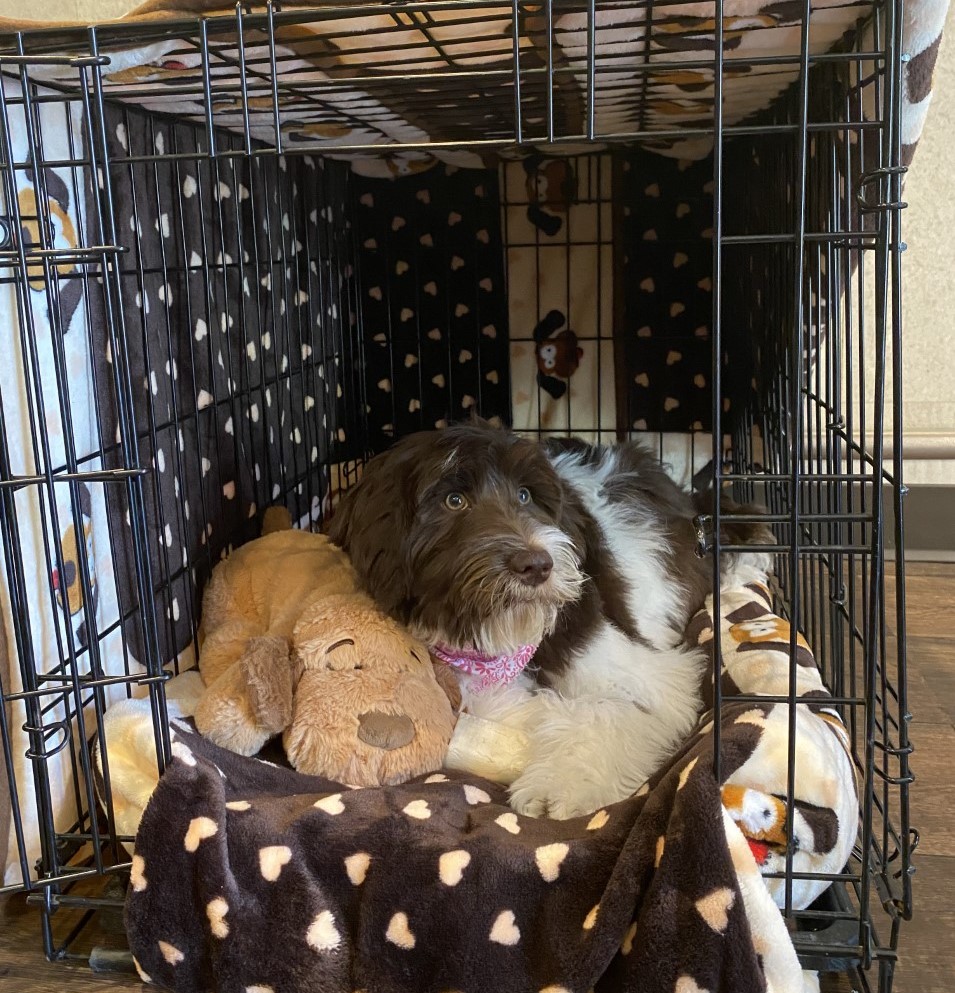There are a lot of advantages to crate training your puppy. Learning to be calm in a crate will make things like staying in a kennel, visiting the vet, and traveling by car easier for them. It’ll keep them safe and prevent them from destroying the house when you’re gone until they gain better control of their curiosity. Plus, a crate can be a comforting, homey place for your dog to feel secure and unwind.
So, how do you train your new pup to see their crate as a special place to relax instead of a place of confinement, anxiety, or punishment?
Start by making their crate a fun, comfortable place to be.
The key to successful crate training is to create positive associations between your dog and their crate. You can do this by making their crate into their own personalized “bedroom”. Place their bed, favorite blanket, or an old t-shirt with your scent in there for comfort. Then, add a few of their toys or give them a special treat that they only get when they’re crated. Remember—a crate should never be used as a form of punishment.
Introduce your dog to their crate slowly.
Throwing your puppy in their crate and closing the door will only make them fear it. Instead, let them explore and get to know it first. Encourage them to enter with treats, words in a positive tone, or a special command they can learn to associate with crate time. Feeding them meals in the crate can be helpful too. Once they’ve become more familiar with it, practice closing them in for small intervals of about 2-5 minutes at a time.
Gradually crate them for longer periods as they grow more comfortable.
Once your dog can sit in their crate without whining for those 5-minute intervals, work your way up to longer ones. When they enter, reward them with praise, a treat, or a toy. Place a blanket over the crate to block out any potentially scary and distracting sights and sounds. Then, walk away. Start with 10-15 minutes at a time, then as they improve work up to 30 minutes. Once your pup can comfortably hang in their crate for 30 minutes, you can start to leave them for several hours during the day when you’re gone and, eventually, overnight.
When you take home an Australian Labradoodle puppy from Blue Star Labradoodles, they’ll already have a head start with crate training. In fact, by the time our puppies go home, they’re not only crate trained, but also sleeping through the night, can understand words like “outside”, and obey basic commands.
To reserve one of the exceptional puppies from our upcoming litters, call or email Blue Star Labradoodles today!


Leave a Reply